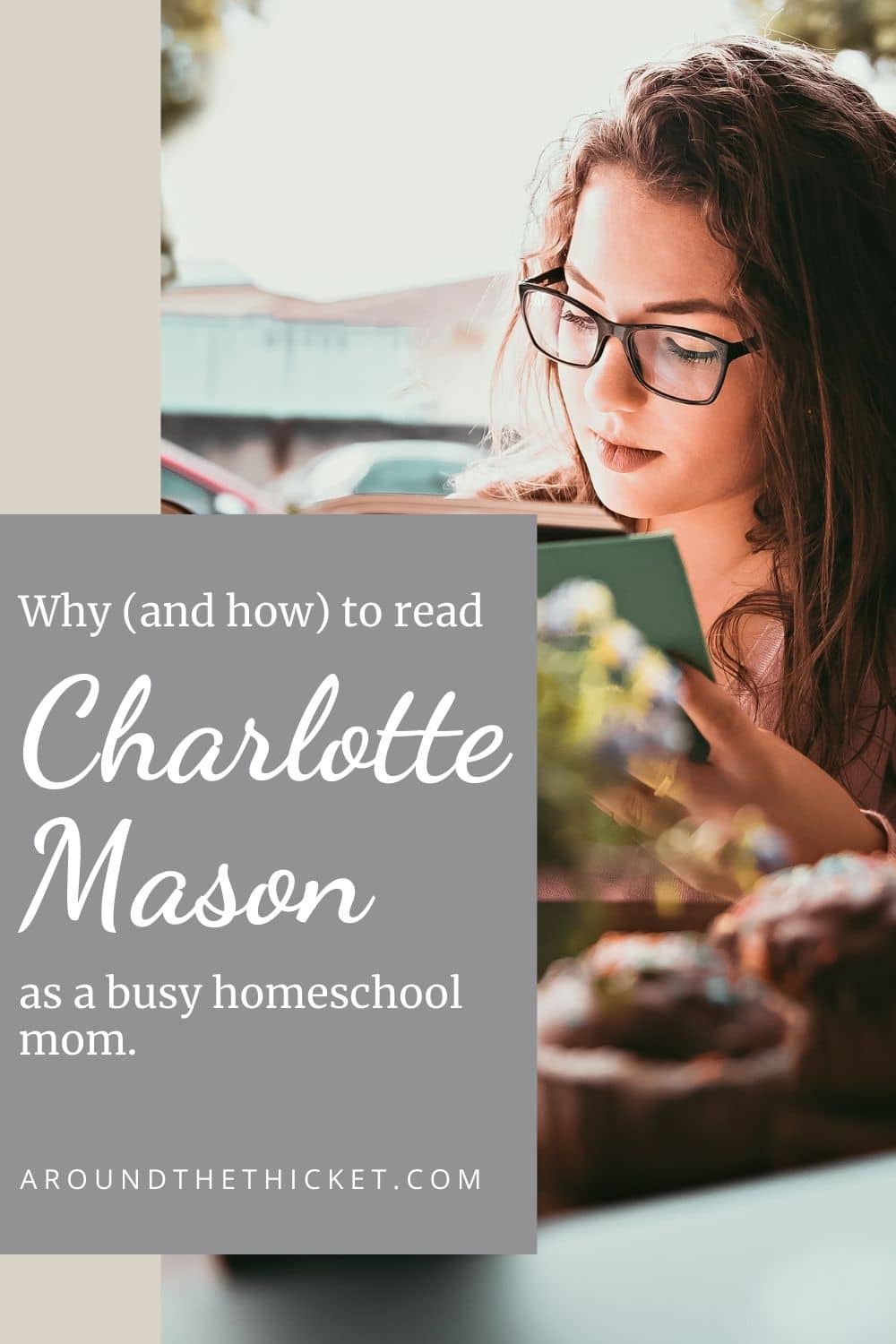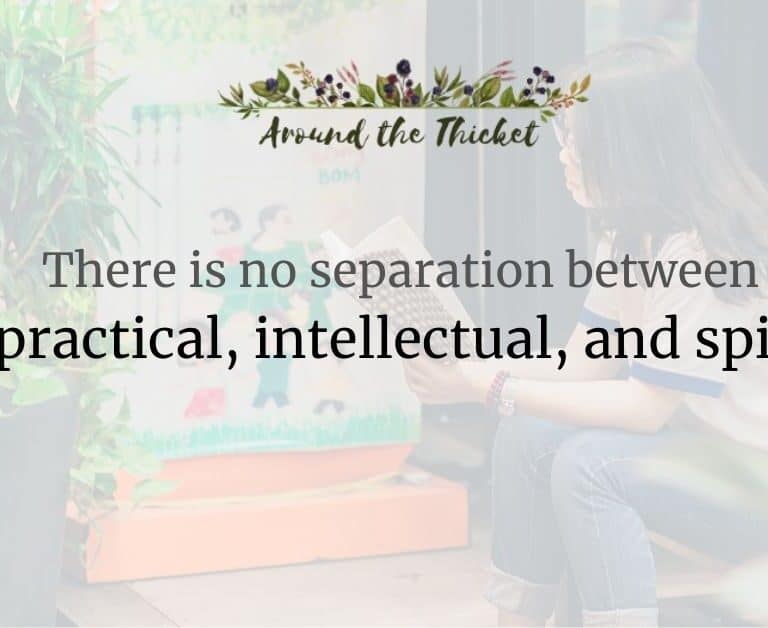Why You Should Read Charlotte Mason for Yourself as a Homeschool Mom
Last month I had the marvelous opportunity to meet with Charlotte Mason home educators from around the UK. The weekend retreat took place in Ambleside, included my first visit to the Armitt Museum (which houses the Charlotte Mason archives), a walk at Tarn Hows, handicrafts, talks from other mothers, and copious amounts of fellowship and discussion.
I left the retreat feeling encouraged to continue learning about and practicing the Charlotte Mason philosophy. Actually, this is an understatement. I left with the conviction that I need to continue reading Charlotte Mason’s books for myself – and that other home educators would benefit greatly from doing the same. Here’s why.
The impact of the Charlotte Mason philosophy is limited by how well we understand it.
Charlotte Mason herself criticized the educational movements of her day for applying ‘schemes and methods’ to education without considering the deeper principles behind those actions. As she pointed out, the results of those methods were lacking because the foundational principles themselves were lacking.
I so easily get caught up in the idea of a Charlotte Mason education. Lovely books, tea time, outdoor play, hymns, folk songs, art. But when I focus so much on the parts of a Charlotte Mason homeschool, I start to lose sight of how they fit together. I forget that a Charlotte Mason education is about the very hard, challenging work of nourishing the growing minds of whole persons.
When we read Charlotte Mason’s works for ourselves, we get the whole picture, not just the parts that go viral on social media. We are able to understand how all of the little pieces fit together. When we keep sight of this big picture, we can better understand and apply Charlotte Mason’s principles.
But Charlotte Mason published her works a century ago – her style of writing itself can be challenging, plus there are so many books, blogs, and other resources available that talk about or paraphrase Charlotte Mason, in much more accessible language. Why can’t we just access these to gain an understanding of the Charlotte Mason way?

We need to read more than narrations of Charlotte Mason’s philosophy.
If you are even vaguely familiar with the Charlotte Mason approach to education, you have probably heard of living books. Charlotte Mason was adamant that children should engage frequently with books that give a spark of thought, an idea to meditate over, that are written by skilled, passionate authors. Her commission to educators was to ‘get out of the way’: read the book to the child, and then ask them to give a narration, or to tell back, what they heard.
The crucial point is that the child engages directly with the book. The teacher doesn’t explain, summarize, or otherwise attempt to put the content into a form that she thinks the child will understand better. The author was or is an expert and a professional. He or she determined and set out the best way for the material to be presented when writing the book. From Charlotte Mason’s perspective, to try to teach a child upon what would actually be our own narrations, rather than the original text, would likely muddle the ideas carefully and purposefully communicated by the author.
The exact same logic leads us to the reason why we need to read Charlotte Mason for ourselves. She was a passionate expert who thoughtfully put together her ideas into books, living books, in the format that she thought best communicated her meaning. The best way to grasp her meaning is to read her own words.
There is still a place reading all the lovely resources about (but not by) Charlotte Mason.
I do want to give a caveat at this point, lest I appear to be a hypocrite. There is still plenty of room for writing about Charlotte Mason’s principles, and it is still often beneficial to read them.
- Many blogs and books are living in their own right. They give you that morsel of an idea to meditate on, mull over, to incorporate into your life and live out.
- Other writings can scaffold our reading of the original. It is tricky to read Charlotte Mason in the original. I only made it through Home Education on my third attempt. Gaining familiarity with her principles through other, more modern discussion can help us ease into reading the original.
- I think educational philosophy is still growing, and so further writing and reflection is necessary and good. I get the impression that Charlotte Mason knew she got some pretty major things correct. However, I think she would be appalled to find no one questioning, researching, and pursuing the development of her work.
There is a balance to be struck, between reading about Charlotte Mason and reading Charlotte Mason for yourself. And the best way to find that balance is to simply make sure that you are doing both!

Don’t know where to start in reading Charlotte Mason?
If you are feeling motivated to dig into Charlotte Mason’s original works, but are looking for moral support, I think you’ll be interested in this! I have a pre-recorded webinar on Charlotte Mason’s six volumes available in my shop.
Think of it like CM101. It’s the background context you need to start making sense of a very intelligent, and very Victorian woman. I give tips on how to get the most out of your time reading here volumes and let you know what to expect from her style of writing. Even if you’ve already started reading Charlotte Mason’s volumes, I think there will be a lot of helpful and inspiring content! Learn more and register.
Want to find your feet with the Charlotte Mason Way?

Grab my eight day mini course on the Charlotte Mason Essentials when you subscribe to my newsletter. You’ll get daily emails, a mini podcast series, and a printable workbook with reading assignments and action steps. You’ll be on your Charlotte Mason journey in no time!







One Comment